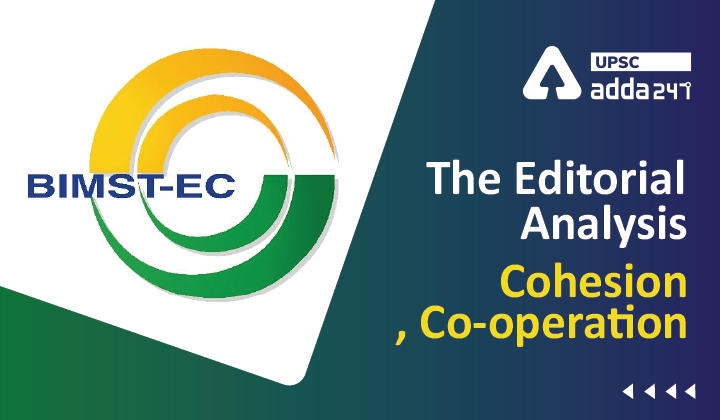Table of Contents
BIMSTEC Summit 2022- Relevance for UPSC Exam
- GS Paper 2: International Relations- Bilateral, regional and global groupings and agreements involving India and/or affecting India’s interests.
BIMSTEC Summit 2022 in News
- Recently, the Prime Minister of India participated in the 5th BIMSTEC (Bay of Bengal Initiative for Multi-Sectoral Technical and Economic Cooperation) Summit.
- The 5th BIMSTEC Summit is hosted in virtual mode by Sri Lanka, the current chair of BIMSTEC.
Key Points about BIMSTEC Summit 2022
- Adoption of the BIMSTEC Charter: the Fifth BIMSTEC summit promises to re-energize the 25-year-old grouping at a time of growing global uncertainties.
- The Charter is expected to help impart a more connected vision to the seven-member organization (BIMSTEC).
- Leading the Security Pillar: India has decided to lead the ‘security pillar’ out of the seven designated pillars of the revived BIMSTEC,
- This has given India’s regional aspirations a new orientation, away from the stalemated SAARC that has been unable to meet since November 2014.
- With his call for a BIMSTEC Free Trade Agreement, Prime Minister Narendra Modi has outlined India’s vision to bolster trade connectivity in the grouping.
- Comparative Advantage: Unlike SAARC, which is burdened by India-Pakistan hostilities, BIMSTEC is relatively free of sharp bilateral disagreements and promises to provide India with a cooperative sphere of its own.
Thorny areas in the BIMSTEC Grouping
- Delayed Decision: BIMSTEC Charter took a long time before it was finalized, showing the inherent challenges faced by the BIMSTEC Grouping.
- Rohingya Crisis: It has weakened bilateral Bangladesh-Myanmar ties, with Dhaka seeking full repatriation of the refugees and Naypyidaw disinclined to respond positively to international pleas.
Way Forward
- BIMSTEC will require sustained bilateral and group-level discussions to prevent problems such as the Rohingya crisis from becoming impediments to the smooth delivery of economic and security outcomes.
- India too will have to ensure equally sustained political engagement with partners such as Nepal, Sri Lanka and Bangladesh to prevent any domestic political spill-over from affecting bilateral and group-level working relationships.
- Sign a BIMSTEC Free Trade Agreement: An FTA spanning the maritime resource-rich members such as Myanmar and Sri Lanka could bring dramatic gains for all members.
- Learning from the failures: The security- and trade-related lessons from the troubled SAARC and SAFTA experiences also ought to serve BIMSTEC well in the long run.
- A ‘coastal shipping ecosystem’ and an interconnected electricity grid, in addition to the adopted Master Plan for Transport Connectivity, have the potential to boost intraregional trade and economic ties.
Conclusion
- India will have to take a leadership role in assuaging any apprehensions among the smaller members of intragroup power imbalances.
- India should also strive to facilitate greater cross-border connectivity and flow of investments by lowering barriers to the movement of people and goods.





 TSPSC Group 1 Question Paper 2024, Downl...
TSPSC Group 1 Question Paper 2024, Downl...
 TSPSC Group 1 Answer key 2024 Out, Downl...
TSPSC Group 1 Answer key 2024 Out, Downl...
 UPSC Prelims 2024 Question Paper, Downlo...
UPSC Prelims 2024 Question Paper, Downlo...




